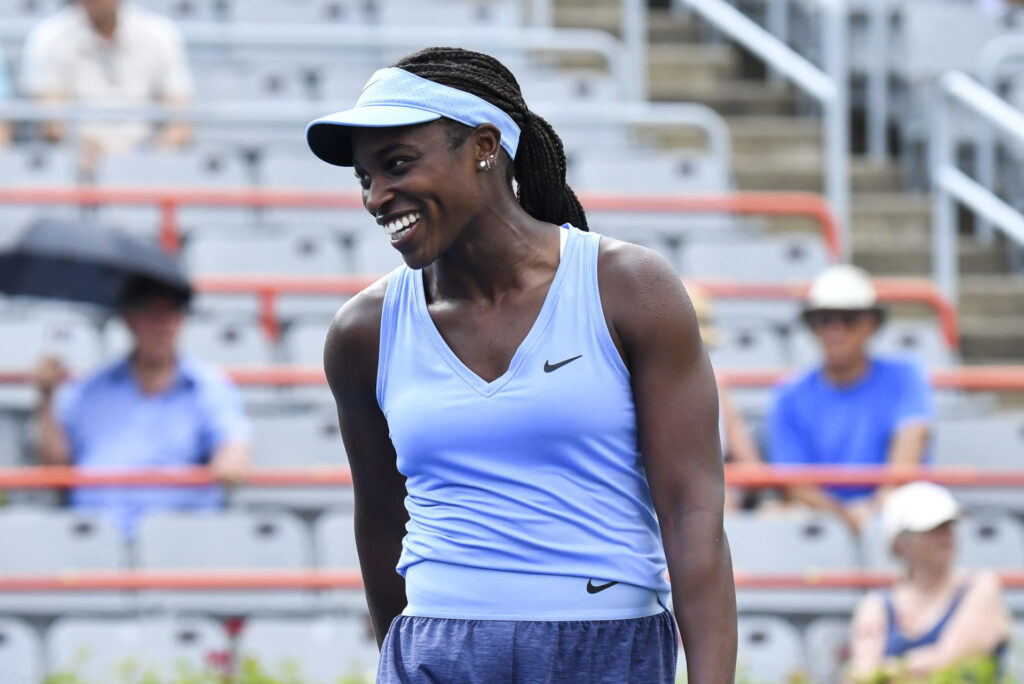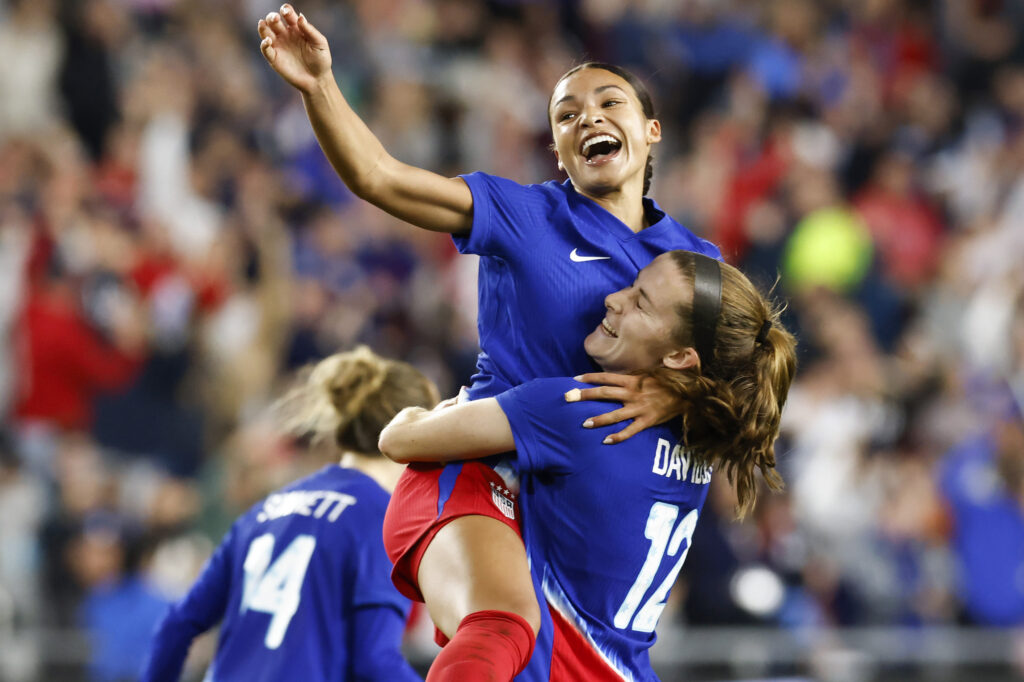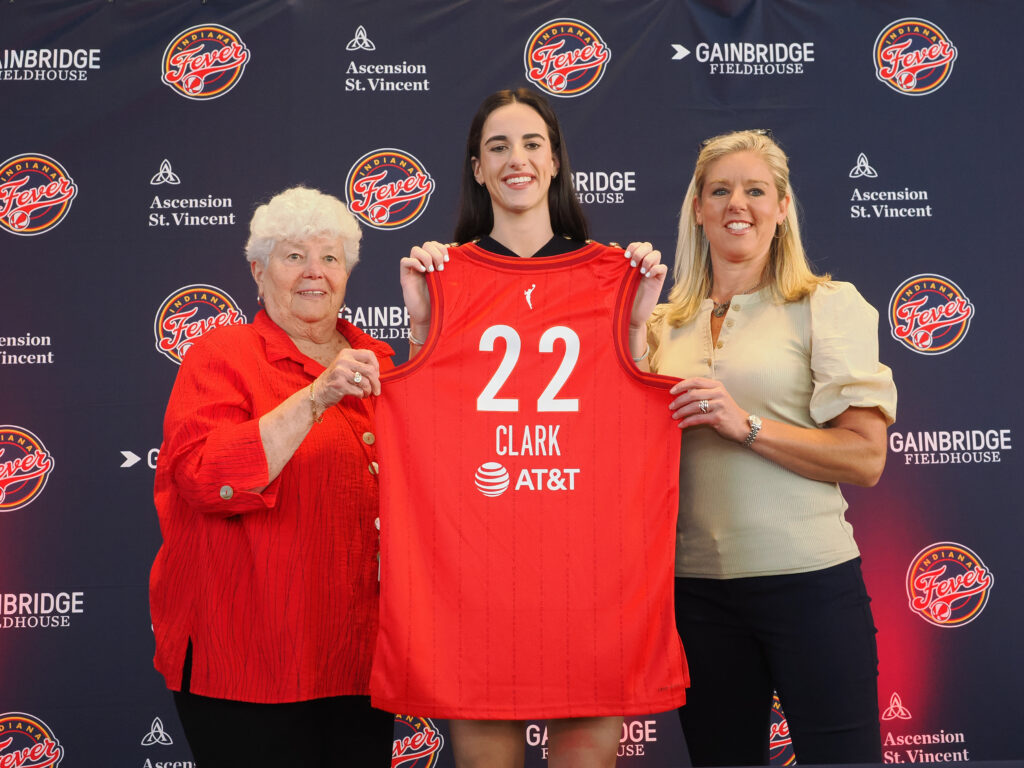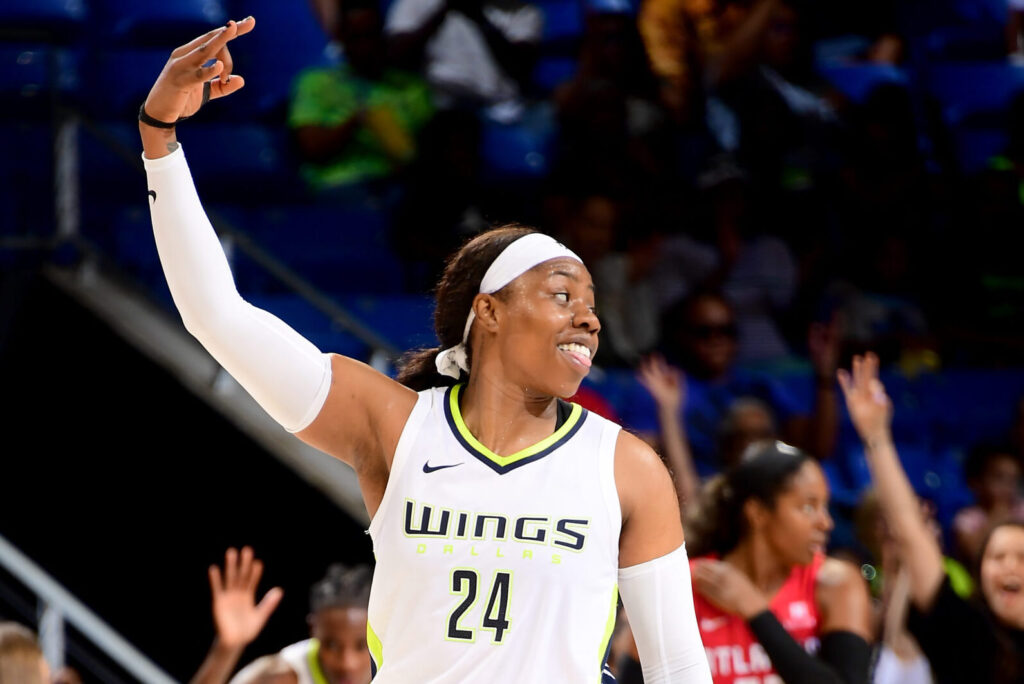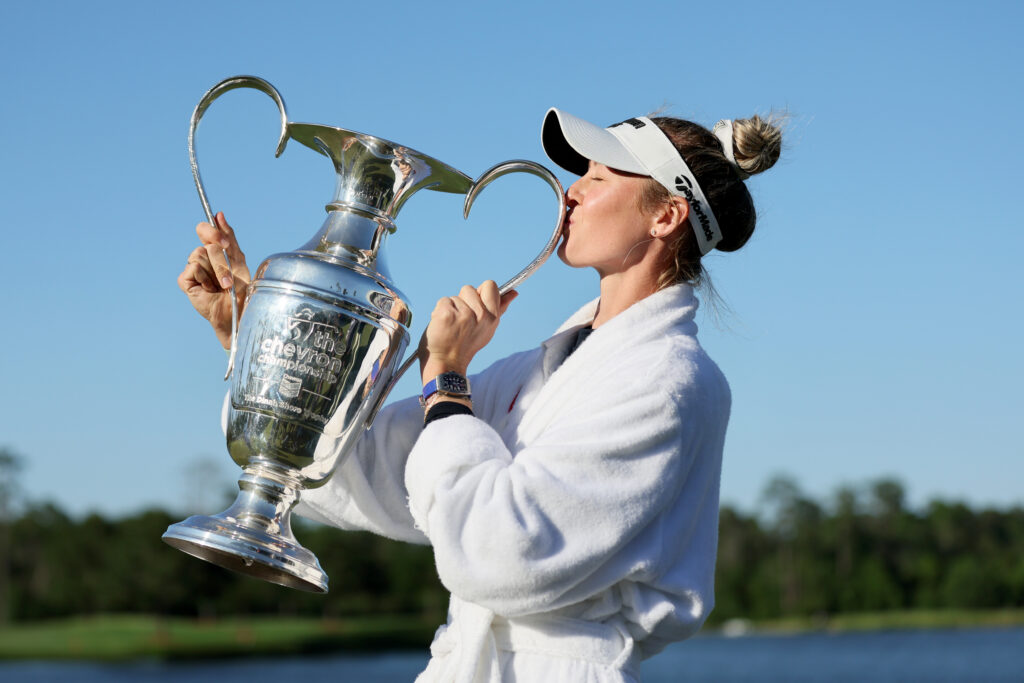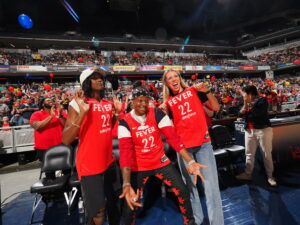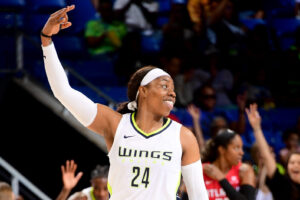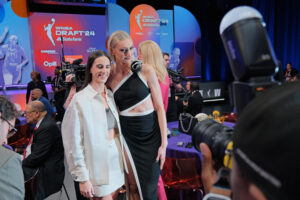When Sloane Stephens walks out of the tunnel at Arthur Ashe Stadium for her opening match of the US Open, it will be understandable if she has déjà vu. Four years ago, Stephens won the tournament with a straight-set victory over Madison Keys, her first-round opponent Monday.
Stephens’ unprecedented run to the trophy in 2017, in which she became the lowest-ranked US Open champion ever, remains her only Grand Slam title. She reached a career-best No. 3 world ranking the following year after winning the Miami Open and finishing as runner-up at the French Open.
Since then, Stephens has had mixed results.
Her form started to slip in 2019 and this year she fell out of the top 60 for the first time since before the 2017 US Open. Stephens has also had to cope with tragedy after losing an aunt, a grandmother and a grandfather to COVID-19 in the past year. She attended her grandparents’ funerals virtually from the bubble at the Australian Open in February and later said she regretted not going in person.
Stephens, 28, enters the US Open this week with a clearer mind. She has played better since the Australian Open and prioritized her mental health through the adversity. For Stephens, the last Grand Slam of the year also carries special meaning.
“It’s obviously the first Slam that I won,” she said. “And when I was 12, my mom and stepdad took me to the US Open. I have those experiences from when I was very young, and I think that’s what makes it so special.”
Stephens spoke with Just Women’s Sports about Naomi Osaka reigniting the conversation around mental health, her charity work off the court and what she’s learned about herself and her game since 2017.
The past year has brought several ups and downs, but you’ve had some good finishes at recent tournaments including making it to the fourth round of the French Open and the third round at Wimbledon. How do you feel about your game right now?
Good. Obviously the pandemic has been rough, and the point situations and the travel have been rough, and everything’s been difficult not just for me but for everyone. So getting matches every week and getting that confidence back is super helpful. I’m not where I was or where I want to be, but I think I’m headed in the right direction. So I’m happy with that, and I’m just trying to work through it, manage every day and just keep going.
I saw you recently changed coaches. What has that setup been like and what have you been working on with them?
I stopped working with Kamau Murray, but I kind of work with the same people. It’s always a different experience working with new people and so far, so good. I’m just trying to get into a space where I can be competitive and win matches again and be happy on the court. I think that’s the most important thing.
You were recovering from a knee injury this summer after a fall at Wimbledon. How has that recovery gone and how are you feeling physically?
The recovery went well. Obviously not enough time, but this is the most important time of the year. So I’m just trying to manage and make sure that I’m ready for the biggest tournament, which is the US Open, but also making sure that these next few weeks I put out good performances and good matches and am really competitive because this is the most important time.
You’ve dealt with injuries throughout your career and battled back from many different types of adversity. As you’ve gained experience from being on tour longer, have you learned to cope with those types of ups and downs better?
Yeah, we’re doing a lot of adjusting and coping. I would say the pandemic isn’t the hardest thing I’ve ever dealt with in my career, but injury is like nothing compared to this. Injuries you can kind of put in perspective, like you know what you’re working for, you know what you have to do to get back and you know what it’s going to take. In the pandemic, you don’t know what’s going to happen. You don’t know if the tour’s going to stop again. You don’t know what the circumstances are going to be week in and week out. So I think being injured is tough, but I’ve definitely put it in perspective more. I’ve dealt with it a lot in my career, but nothing compares to obviously a pandemic.
Since Naomi Osaka pulled out of the French Open and Wimbledon for mental health reasons, how has her message resonated with you and how important do you think it is that mental health has become part of the conversation?
Yeah, I’ve been talking about mental health and taking care of yourself for years now. And I think she was the perfect person to step up for herself when the time wasn’t right for her and to say what she needed to say. I think you have to support that and you have to applaud her because she did that when a lot of people wouldn’t, and I think that shows strength. She chose what was best for her and a lot of people didn’t like that. This pandemic has taught a lot of people that you do have to put yourself first and you have to choose yourself over making other people happy and making decisions based on what other people think. That’s just my personal experience, so I’m obviously happy to be around to see her strength and her will to do what is best for her.
It’s especially true in tennis because the schedule is so grueling during the year. Have you developed any tactics over the years to help with your own mental health?
Yeah, I do what’s best for me and I have been for a while. Obviously everyone is different and they handle everything differently. I have my own ways of coping to make sure that I’m in the best possible shape and form. It’s not easy, but I think that acknowledging whatever it is that you need to make sure that you feel good about yourself or feel good about what you’re doing is really important, with whatever method you use to determine that.
You’ve been on the WTA Player Council since 2019. Are you having more conversations about mental health now with the group?
I think it’s always been something that’s at the top of the list for everyone. We have a grueling schedule, it’s a long year, we’ve never been in a position where we’ve had to adjust to so many things and face so much adversity. The pandemic has put everything in perspective and it’s a different type of adjustment. So, being able to put this first and put the players first and put the group of players that really are struggling first, I think that’s been really important. We’ve discussed it a lot, we’ve kept it top of mind, and I think that’s the most important thing.
And speaking of lifting other people up, you’ve done a lot of work off the court with the Sloane Stephens Foundation and other charities in recent years. What have you been most proud of there and why is it so important to you?
When I started my foundation, it was more about giving the kids the opportunity through tennis and through education to see all of the possibilities and all of the goals and accomplishments you can reach. We’re based in the Compton Unified [School District], so a lot of our kids don’t have Internet, don’t have WiFi, don’t have computers, don’t have any access to keep up with their studies. They don’t have any tutors or they don’t have the necessary things that a lot of kids have access to. So for us over the pandemic, the most important part was making sure that our kids that were in our program not only had WiFi, but they had food to eat.
A lot of our families struggled with having meals. My mom was buying bulk food from Costco to take to our families. We don’t have that many kids, we don’t have 7,000 kids, but we have enough that we can make progress. And our girls that graduated high school this year that are going to four-year colleges, first-generation college students, that for us is a win. What we’ve done over the pandemic, it’s just been really great to see that through my tennis and the things that I’ve been able to do in my life and the things that I’ve been given in my life, I can give that back and be of help and assistance to another family who may need it. I think that’s what giving back is all about.
You were also a part of a WTA panel for young girls exploring future careers. Based on your own experiences, what was your message to those girls?
Put yourself first. There are always going to be ups and downs, but I think it’s important to be able to manage day-to-day. Like, have fun, enjoy your life, enjoy playing tennis, enjoy learning, enjoy whatever it is that you’re doing, because life is too short to not be happy. I think at a young age, when you have that mindset of enjoying yourself, being productive and setting a goal and going out and getting it, that determines how you live and how you choose to execute whatever it is on a daily basis. That’s what I try to tell them.
It’s been four years since you won the US Open. What have you learned about yourself as a player and a person since then?
I think a lot has happened. As a person, I’ve developed, I’ve learned, I’ve grown. As a player, there’s been adversity and ups and downs, but I try to navigate it as best I can and have a good attitude about it. That’s really all you can do.
You said at the beginning you’re feeling pretty good about your game right now. What are your goals going into the US Open?
Just winning matches, being competitive, trying to do my best. It’s been a long season and it’s been very hectic and chaotic. So I think going into every tournament ready to play and looking for wins is what the goal is. That’s pretty much all I can ask of myself, just to give my best effort and see how it goes.
